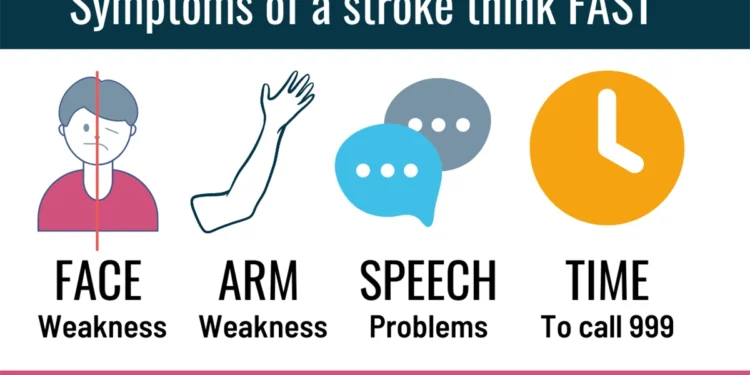Every 5 minutes someone in the UK has a stroke AND there are 1.3 million stroke survivors in the UK.
No matter how long after your stroke, the brain continues to re-wire itself (it’s called neuroplasticity!), allowing you to see improvements in skills such as walking, talking and using your affected arm.
My name is Emma Thomas and I am the Founder of Neurobility in Kings Sutton, near Banbury. We have a team of Specialist Physiotherapists who have many years of working with people after a stroke or suffering other neurological conditions.
We’re here to support people to rebuild their lives after a stroke. We believe everyone deserves to live the best life they can after a stroke and our team of experts live into this passion by offering the most up to date treatment and service, including accessing some of best technology to create amazing results and changes for our clients.
What is a Stroke?
A stroke is a disruption to the blood supply in the brain. The most common cause of stroke is an ischaemic stroke, this is a blood clot or some fatty material blocking a blood vessel in the brain and starving it of blood and oxygen. Less common is a haemorrhagic stroke, these are caused by a weak artery bursting and allowing blood to seep out into the brain tissue.
How does a Stroke affect people?
A Stroke can affect people in many ways depending on where in the brain it occurs and how severe it is. About half of stroke survivors are left with significant disability which can affect balance, walking, use of the arm and hand, sensation, swallowing, communication, cognition, and ability to do everyday tasks. Stroke can also cause fatigue and pain. Having specialist rehabilitation really does improve outcome after stroke and minimise disability, and it’s never too late to start.
What are the symptoms of a stroke?
A stroke is a medical emergency. The sooner someone receives medical help, the better their chances of survival. The best way to remember the symptoms is FAST
F – Facial weakness: Can the person smile? Has their mouth or eye drooped?
A – Arm weakness: Can the person raise both arms?
S – Speech problems: Can the person speak clearly and understand what you say?
T – Time to call 999: if you see any of these signs.
Other signs that should be taken seriously are sudden weakness or numbness on one side of the body, sudden blurred vision or loss of sight in one or both eyes, sudden memory loss or confusion, and dizziness or a sudden fall, a sudden severe headache. Call 999 straight away.
What can cause a stroke?
High blood pressure is the biggest risk factor. Other medical problems such as diabetes, Atrial Fibrillation and high cholesterol are also risk factors. The risk can also be increased by lifestyle factors such as smoking, drinking too much alcohol, being overweight and eating unhealthy foods.
It is never too late to reduce your risk of stroke by cutting down on alcohol if you drink more than the recommended units per week, stopping smoking, staying a healthy weight, eating healthily and being as active as you can. You should take medication that is prescribed to manage medical conditions and attend check-ups with your doctor.
Can people recover from Stroke?
A stroke damages some of the connections inside the brain, and between the brain and the body. You can start to make new connections in the healthy parts of the brain when you do exercise and rehabilitation activities, this is neuroplasticity. As these connections build the brain gets better at controlling the body.
This process can be helped along by rehabilitation, but it doesn’t just happen during therapy. Every time you take a step, or do an exercise with your arm and hand, or say a new word you are helping the brain to make new connections.
There is no time limit on neuroplasticity. There is scope to make changes for many years after a stroke. With the right support, many people go back to their hobbies and activities.
Can you help me?
If you have had a stroke or know someone who has, the team at Neurobility are here to help. We are offering readers the chance to have a FREE stroke consultation with our team, where we will find out what you are struggling with, what you want to be able to do, and we can explain how we can help. If we are not the right fit, we will point you in the right direction so that you have a plan.
To find out more or book your FREE consultation get in touch with us. We have 8 consultations available so grab yours today!










